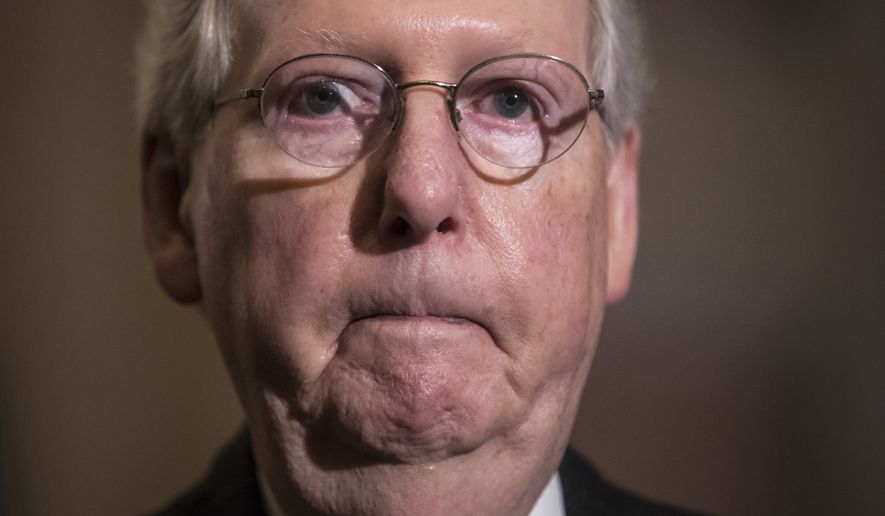OPINION:
Passing tax reform in record time will prove a significant accomplishment, but it pales by comparison to the challenges Republicans must tackle next.
The recent surge in stock prices and bump to gross domestic product growth have been significantly assisted by an expected cut in corporate taxes, but to permanently lock in those gains and substantially improve the lives of ordinary voters, Republicans must quickly address health care, immigration, infrastructure and problems in higher education.
Tax reform was possible because Republicans cared about it so much and agreed about broad contours of the ultimate product — those conditions are not met on the above-mentioned issues.
That’s why health care reform failed in the Senate but nixing the individual mandate in tax reform legislation will further accelerate inflation and limit choices on government-run health insurance exchanges. That transfers ownership of voter discontent with Obamacare to the Republican Party.
Pouring substantially more subsidy dollars into health insurance to stabilize prices would be risky — that could further embolden the duopoly of insurers and hospitals in many markets to be profligate with federal dollars — and is surely unwarranted.
Germany runs a similar private insurance apparatus at about two-thirds our cost. Also a large federal system, it finds interstate competition inadequate to control costs and imposes price controls. The Republicans’ affinity for free markets notwithstanding, there is really no other way out.
That’s what would be at the core of Bernie Sanders’ single-payer system. If the Republicans don’t hold their nose and persuade conservatives in their ranks to accept federal agencies negotiating directly with Big Pharma and require that hospitals not be run like public works programs, frustrated voters will hand the ball to the Democrats. And something akin to the British Health Service — but looking as moribund as our Postal Service — will be imposed.
President Trump is forcing Congress to come up with a solution by March for the Dreamers — young adults who were brought here illegally as small children. Democrats want legal status for their parents — a sly way of garnering more votes — and Republicans want ever tough border enforcement.
Real immigration reform — modeled after systems in Australia and Canada that emphasize skills in short supply instead of lotteries and chain immigration of relatives — is sorely needed to help fill skill gaps in the American work force and buttress U.S. international competitiveness. And to convince the most desirable potential immigrants — scientists, technicians and engineers — America is a safe and welcoming place to cast their lot.
A big infrastructure package — along with more Americans enrolled in engineering and technical programs — is needed to permanently rev up growth and provide more jobs for the many semiskilled workers in rural communities and smaller cities that have been riveted by globalization.
Mass transit, water and sewage systems, school buildings — along with enrollment and capacity in engineering and technical programs — need upgrading and expansion. Many rural communities lack adequate internet to attract new employers. However, governors and university presidents seem more dedicated to building sports stadiums and marvelous student recreational centers than addressing either infrastructure or pressing educational needs.
As originally conceived, taxes on the more than $2 trillion in profits stashed abroad by U.S. multinationals were to be a down payment to finance a big infrastructure program, but Republicans used that money to help slash the corporate tax rate to 20 percent. Other Republican solutions like private funding have been tried around the country and often lead to exorbitant utility bills, unreliable ambulance services and bankrupt toll roads — or at least toll roads too expensive for most commuters to use.
If Republicans want an infrastructure bill they will need to raise the gas tax and cut spending elsewhere, and make those palatable by ensuring that road taxes are used for the roads — not bike paths or to feather the nest of construction unions. And they will have to finally come down on the spending excesses of university presidents and state officials who plead poverty while showering billions on Club Med facilities to attract applicants and temples of veneration for the NCAA and NFL.
Much of this is unpopular stuff and will require a lot more courage than dolling out tax cuts, but that is exactly what the Republicans must exhibit to hold on to reins of power.
• Peter Morici is an economist and business professor at the University of Maryland, and a national columnist.




Please read our comment policy before commenting.